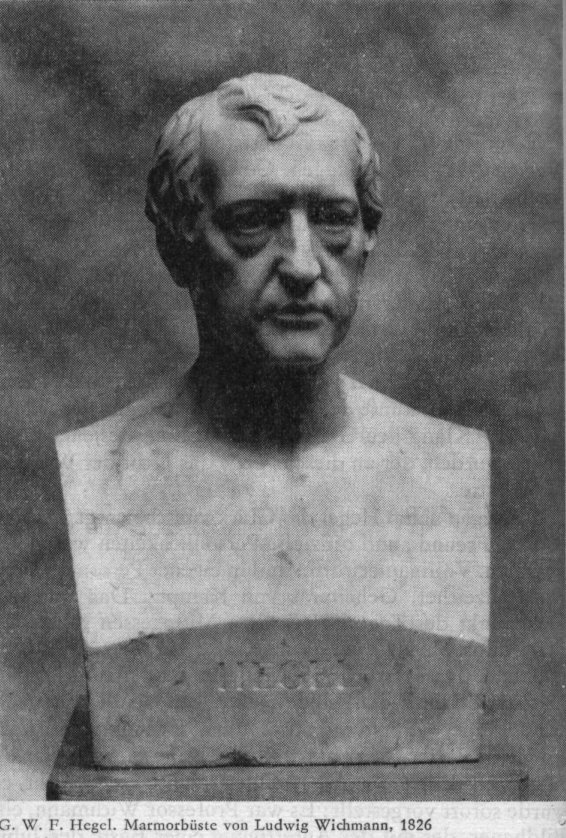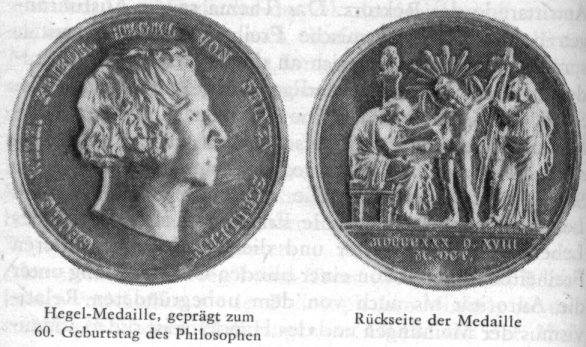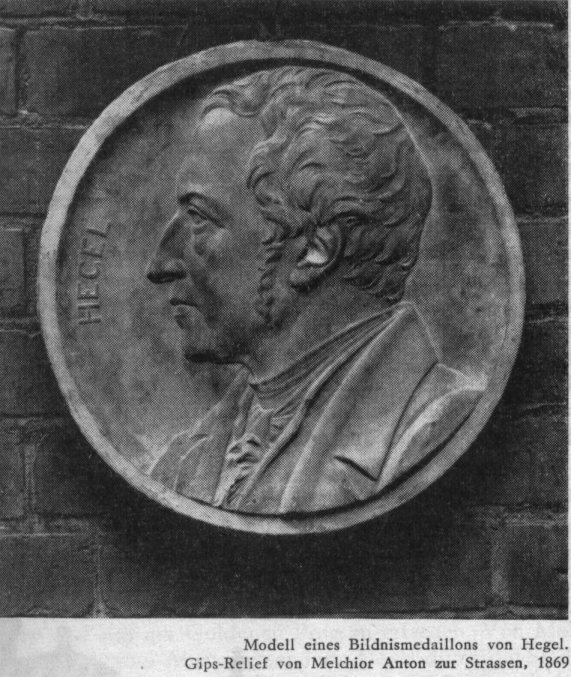 Up to Philosophers in Disgrace and Demand
Up to Philosophers in Disgrace and Demand
 Up to Philosophers in Disgrace and Demand
Up to Philosophers in Disgrace and Demand
|
Hegel
(Knight in the Prussian Order of the Red Eagle,Third Class)
 In
In
Hegel's philosophy of history: society, after a development and transformation of many thousands of years finally reaches the "absolute" phase, where all relations on every level are perfect. This was exemplified, he wrote, by the Prussian State in which he lived and which, accidentally, was his employer.

Hegel's philosophy is reflected in the ethic of "my station and its duties," and even more strongly in the significant resemblance between Hegel's detailed description of the organic society and the actual institutions of the Prussian state in which he lived and taught for the last decade of his life.
He divided world history into four epochs: the patriarchal Eastern empire, the brilliant Greek boyhood, the severe manhood of Rome, and the Germanic phase after the Reformation. The "Absolute," like a conductor, summons each people to their finest hour, and neither individuals nor states have any rights against them during their historically determined period of supremacy. Hegel claimed that the Prussian state embodied the hitherto highest self-realization of the "Absolute".

In 1830 he was rector of the University of Berlin. In 1831 he received a decoration from Frederick William III. It was a gorgeous decoration made of fine cloth and precious metals, called "Der Orde des Roten Adlers 3. Klasse".